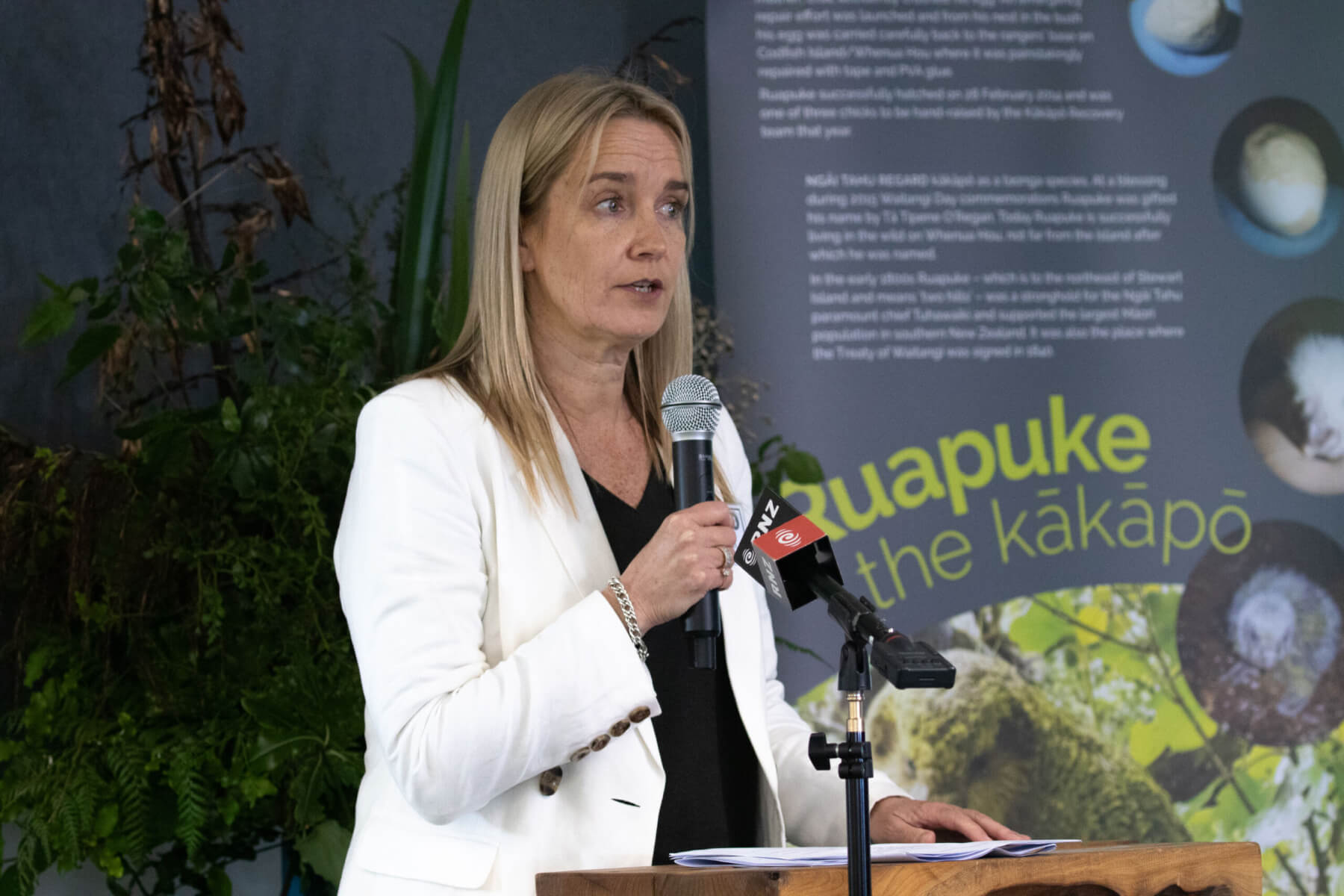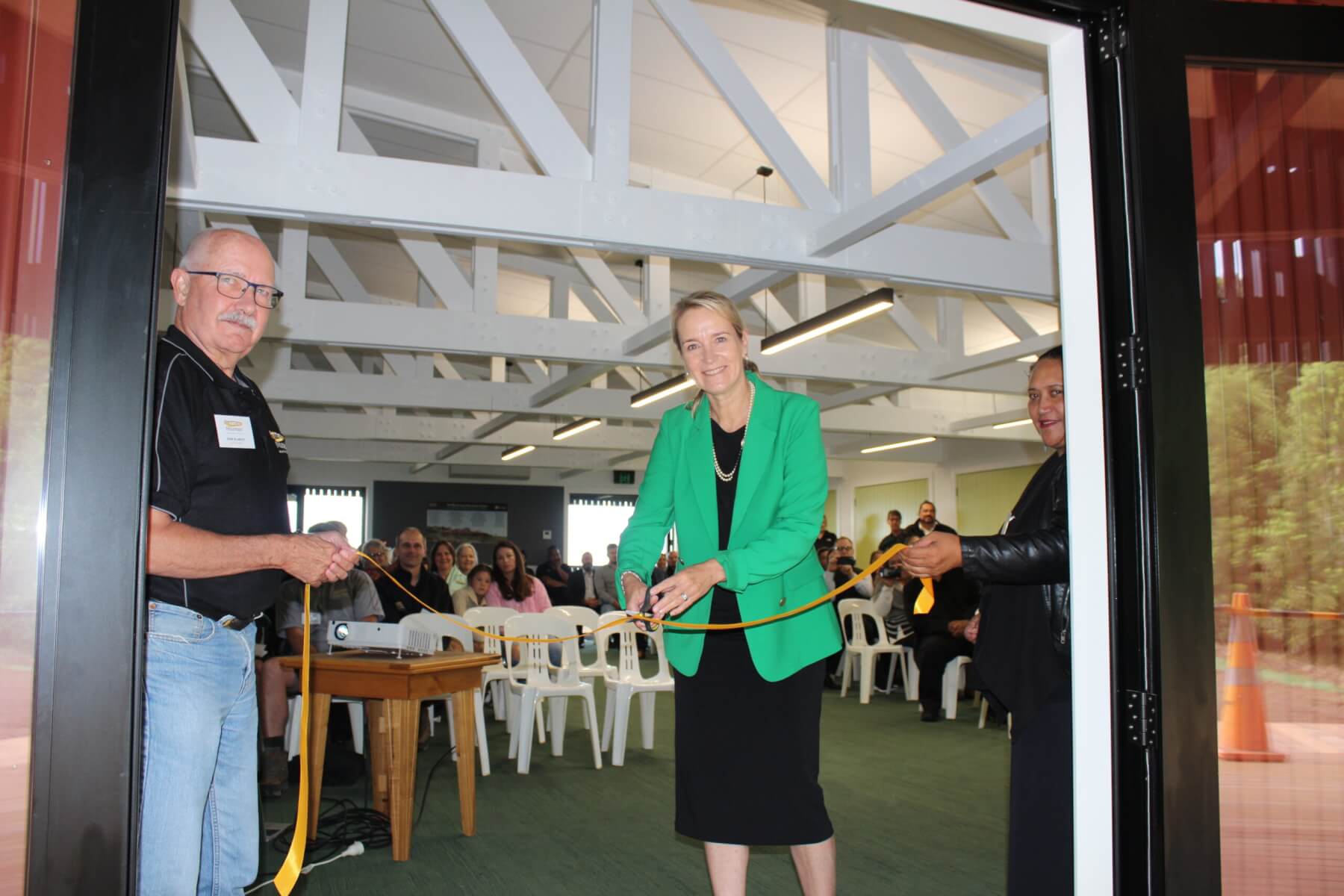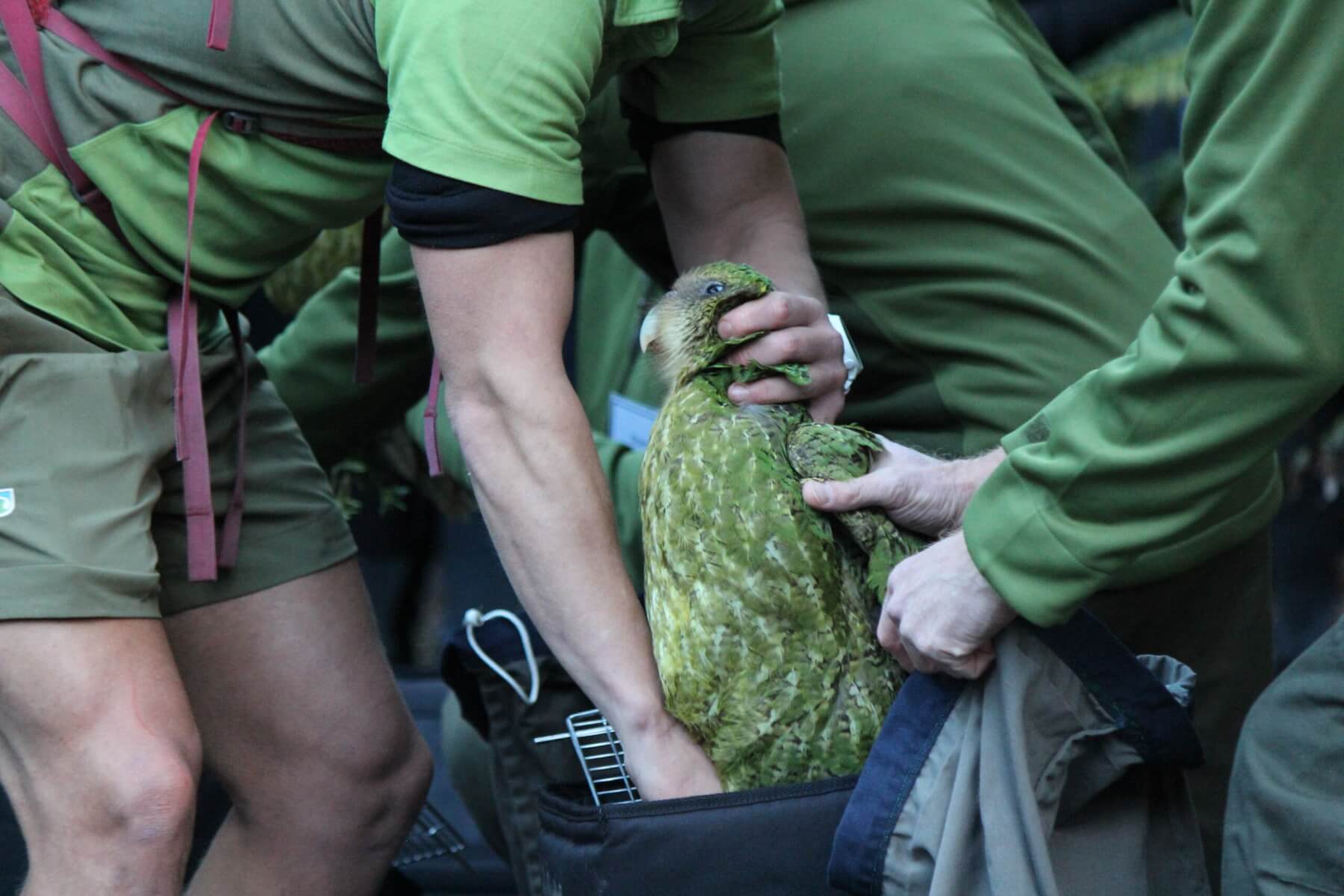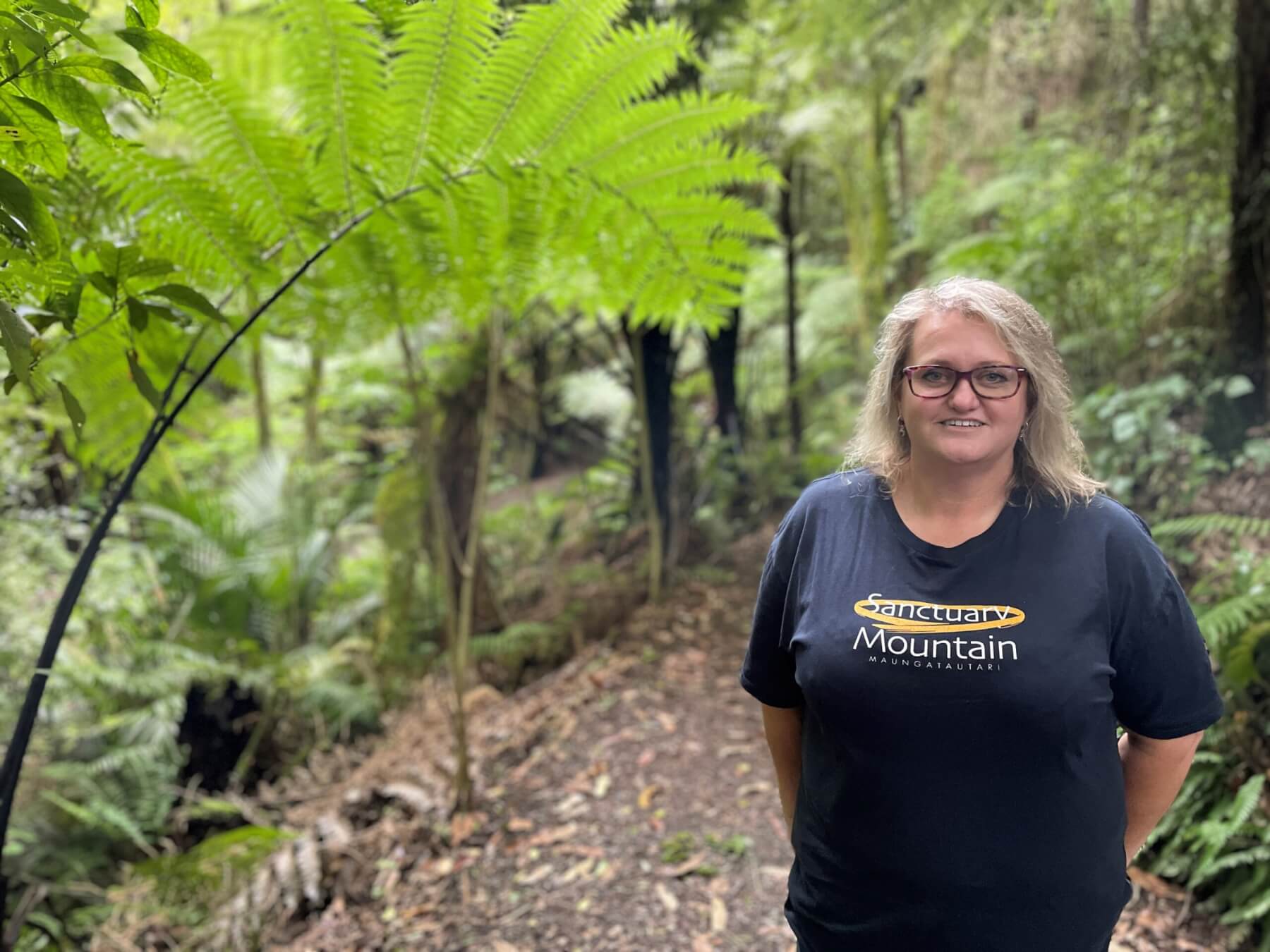Waipā mayor Susan O’Regan is calling on the Department of Conservation to dig deeper into its pockets and help save Sanctuary Mountain Maungatautari from closure.

Susan O’Regan speaks at the release of the kākāpō on Maungatautari. Photo: Stuart Attwood Photography.
O’Regan accompanied sanctuary chief executive Helen Hughes and conservation minister Tama Potaka on a tour of the mountain in May when it was revealed to the minister a cash flow crisis could result in the closure of the world’s largest predator proof enclosure.
Potaka has deflected the plea back to DOC, saying it is an operational issue. But O’Regan, whose council has spent $3.2 million on the project in 10 years, has been advocating for more DOC support for nearly a year.
“Too many New Zealanders aren’t likely to get the privilege of seeing kaka or watching wood pigeons so what is the value of that to New Zealand? The Government needs to be honest about their value, and I would like to see the Department of Conservation step up a little more,” O’Regan said.
“I certainly made mention of that to [DOC director general] Penny Nelson at the time of the kākāpō release [in June 2023], appreciating we’re in a really constrained landscape across the country.”

Waipā mayor Susan O’Regan cuts the ribbon to open the new education centre. She is pictured with Maungatautari trust coach chairs Don Scarlett and Norma Taute. Photo: Roy Pilott
The 20-year-old project, which costs $5000 a day to run, was initially funded by the department, district council and Waikato Regional Council. But in recent years DOC has moved away from funding operational costs, cutting $1.5 million from the project over four years, and focussed on specific projects on the mountain.
“Nobody likes the boring funding of operations expenses, everyone likes capital expenses so that you can go in and cut a ribbon and smile and get a photo and the reality is that it’s the tough grind, day in day out, maintaining the fence, ensuring that all the operational features of the project are met, and that’s a little less exciting to fund,” O’Regan said.
“The benefits of this living treasure should be more fairly spread across the nation. It’s a crucial piece of work, it’s pretty cool.”

A pair of kōkako at Sanctuary Mountain Maungatautari.
O’Regan said the project did not give the sense of security and certainty that a project of its importance ought to have. But she was heartened to hear Hughes was tackling the operation’s cash crisis head on with a five-year plan to make the project self-funded.
Hughes is hoping to realise $1.5 million a year by selling 3363 conservation management hectares at $450 a hectare through Ekos’ market-based conservation financing mechanism. She wants to attract more tourists by scheduling bespoke half-hour tours that suit visitors to Hobbiton Movie Set Tours and Waitomo Caves.
“I’m really heartened for the new general manager, Helen, to put her nose to the grindstone and see how she can help create new income streams, because it needs to continue, and it will continue,” O’Regan said.

Up he rises: the first of the four kākāpō to be seen on Maungatautari is taken out of his box. Photo: Roy Pilott
The mayor said the project had had its moments over the decades.
“They always manage to pull rabbits out of hats. If anybody’s going to pull rabbits out of hats, Helen’s the person. As you’ve seen, full of energy, great ideas, and curiously doesn’t come from a conservation background, so she brings a different kind of lens which is quite refreshing and hopefully will reap reward for the project in the not-too-distant future.”
Hughes joined the project in October from the Ministry of Primary Industries where she was a manager of grant and contract management for four years.
“It’s a cool place,” O’Regan said of the maunga.
“I just think it’s up to all of us to support it, not just some of us. The conservation department have funded a considerable amount of money, they haven’t just walked away, but it’s all been attached to specific project work, and it still leaves that op ex budget looking unhealthy.
“You can do all your neat project work like Kiwis for Kiwis and kākāpō translocation stuff, which is awesome, but you still need to have a functioning fence, you still need to have rangers doing work daily for those projects to thrive. Let’s be honest about the actual cost to keep the place intact and what that value has to New Zealand and all New Zealanders.”

Helen Hughes at Maungatautari. Photo: Chris Gardner








